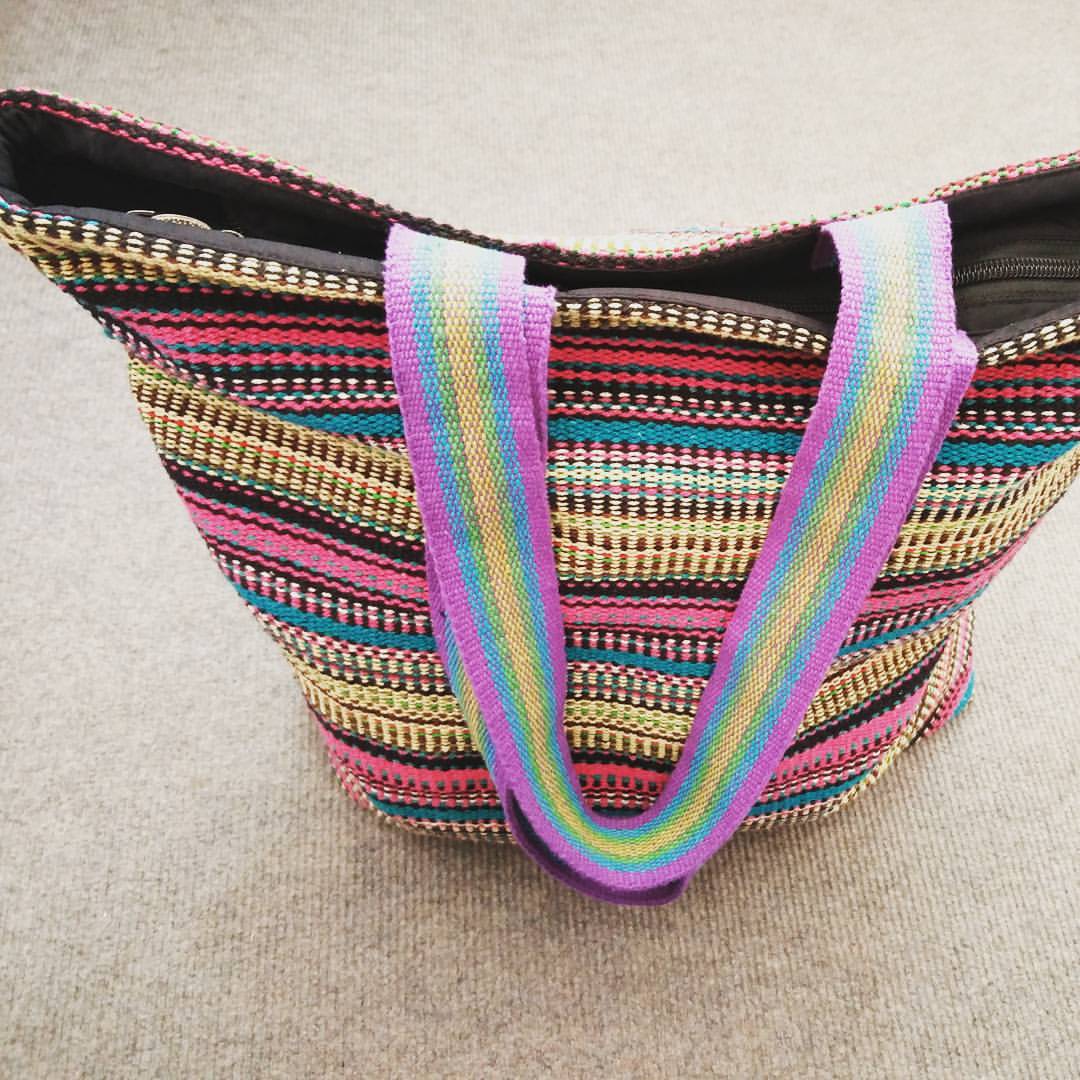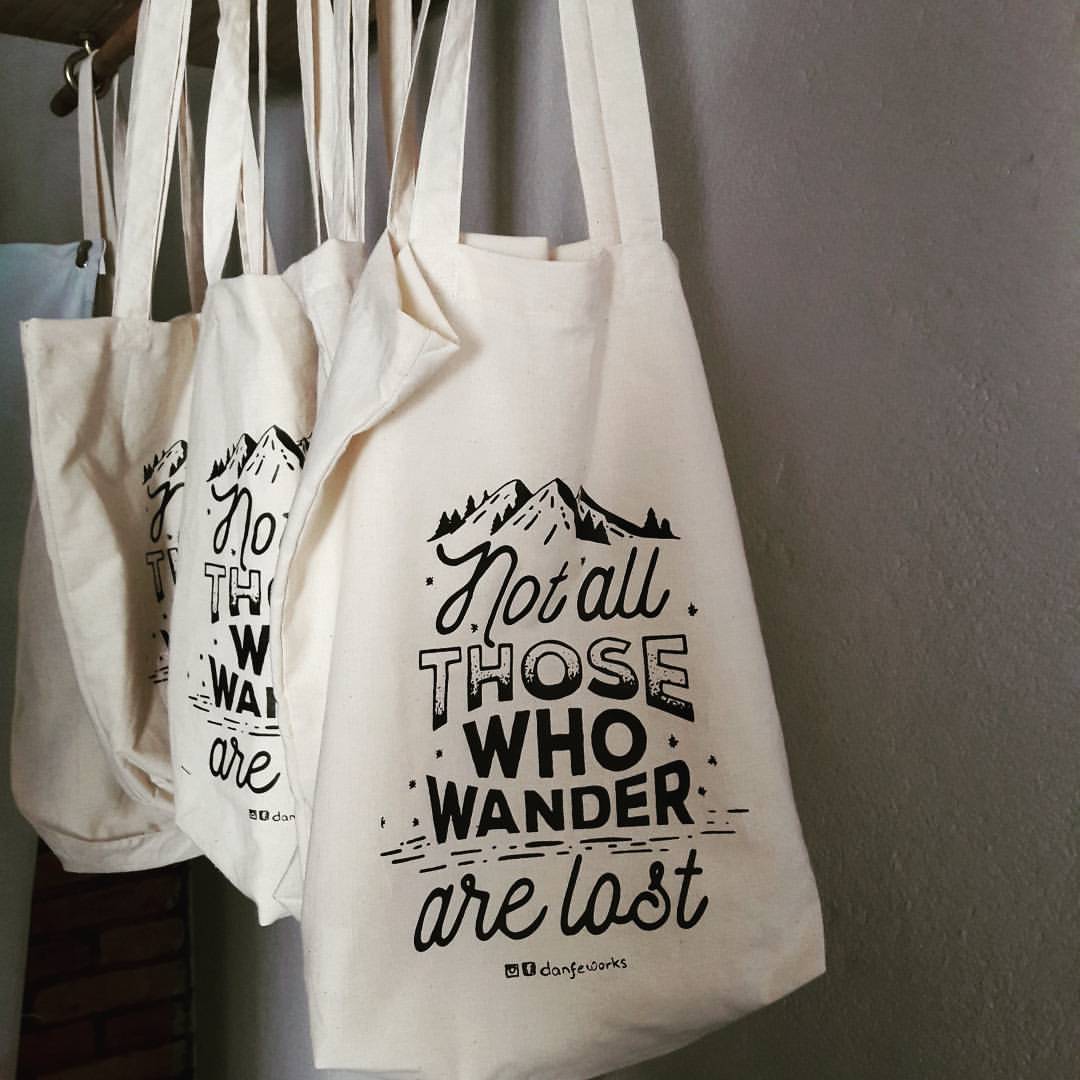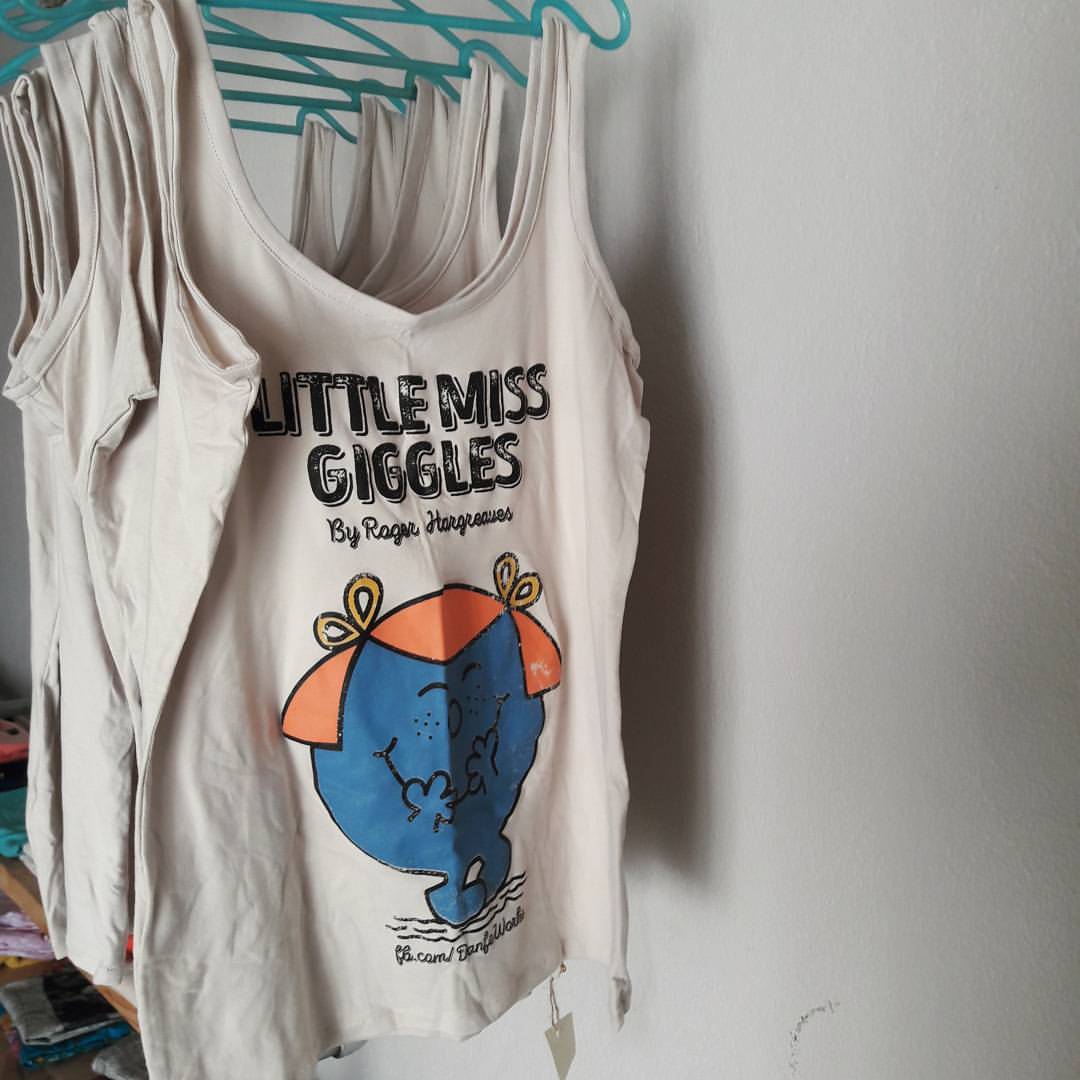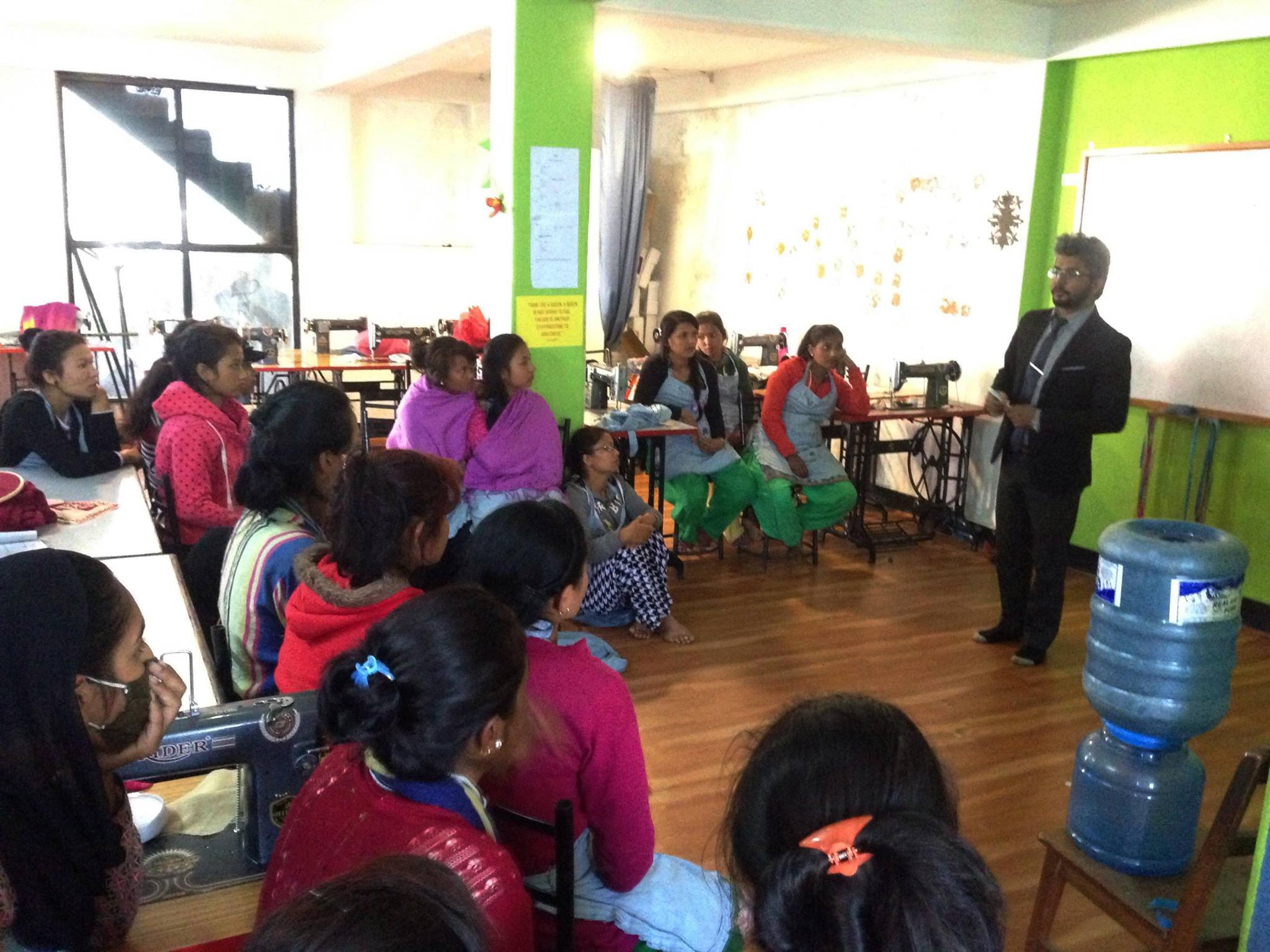Immediately after the April earthquake last year, SAATH, an NGO based in Kathmandu came up with an idea to launch a livelihood to assist the girls from the earthquake devastated Sindhupalchowk district. The social enterprise, Danfe, was then formally launched as its pilot project in June 2015, and started off with 5-months long tailoring training for five girls from the area, to later place them for a job, that would be a support to their earthquake-affected families.
They had named the project as Danfe, symbolizing the group of girls from different background, ethnicity and culture coming together as a beautiful, colorful and vibrant bird Danfe (Lophophorus). The girls were coming to the training with a hope, and the project tried to color their life.
SAATH had formerly launched the project with funding from their own, and well-wishers in their network. After the success of the pilot project, they were approached by Caritas Canada, providing further investments for the project, and they were able to upscale the project. In the second phase, in January 2016, they took the project to 30 other girls from Makwanpur, Kavre, and Sindhupalchowk into the project.
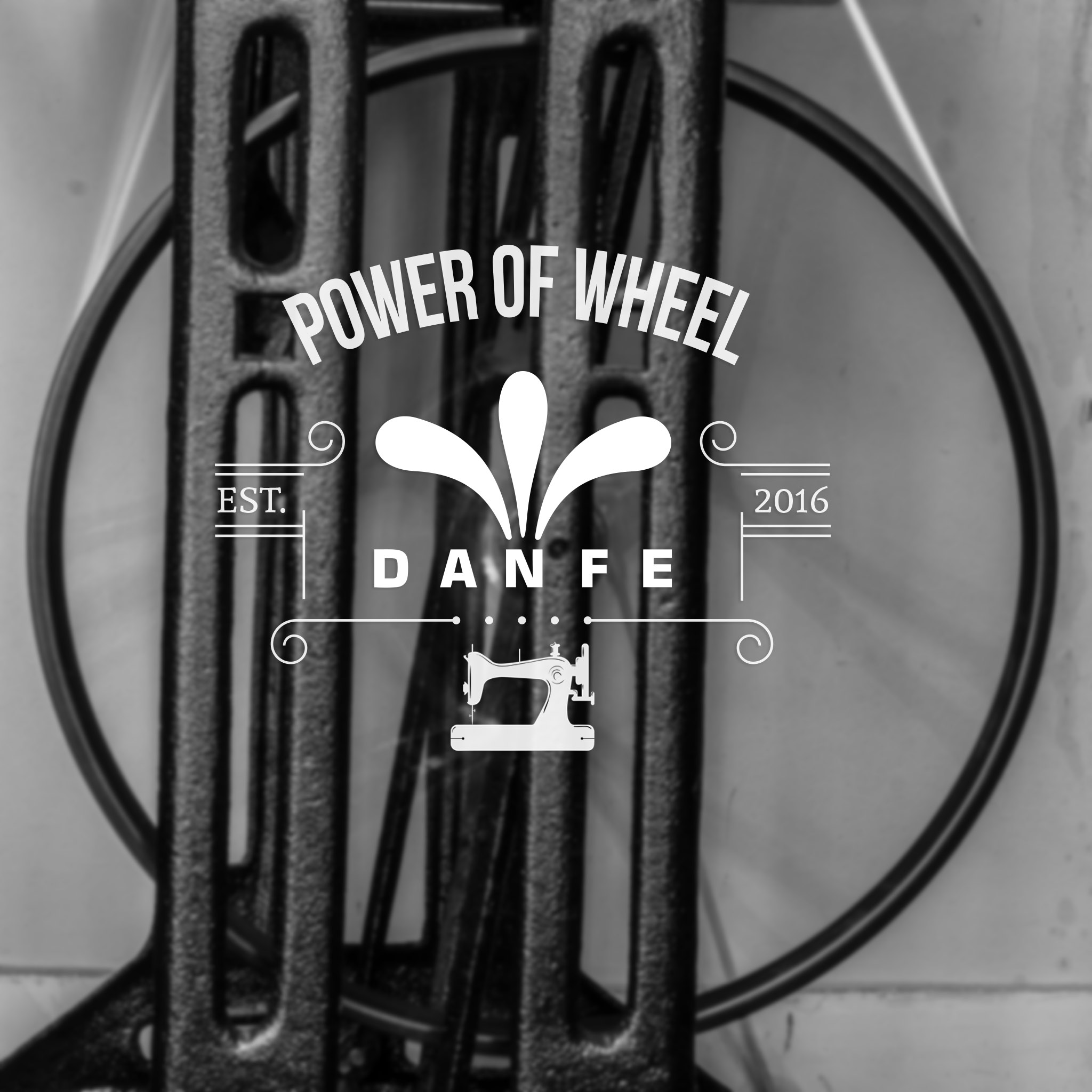
Talking about initiation of the project, Kritishma Karki, Executive Director at SAATH shares that the organization was involved in earthquake relief works immediately after the quake. “Amidst the work, we studied what would be a more substantial work in that situation to make the condition of the quake victims better. Then, we started the project, first of its kind at SAATH,†shares Karki.
Danfe also focuses on the holistic development of the trainees, including their capacity building and socialization. “Our trainees get tailoring training all throughout the day. And, every week, they are put in theatre, counseling, and education classes. We focus on extra-curricular activities as much as we focus on trainings,†Karki shares about the working model of the training.
As 5 months of training has recently been completed for the girls in the second batch, 24 girls from the group of 30 have left for their villages after the graduation, to start tailoring business, while the remaining 6 are placed for jobs at Danfe itself.
At Danfe, they are trained to produce women’s dresses especially including T-shirts, Shirts, Tops, Kimono and Outer, along with Kids Wears and tote bags. They also learn to make clothes suitable for children to grownups. “While training, we don’t teach them only on the basis of the urban context. Since most of them return to their village after the training is over, and clothing of village is different from urban clothing, we first study about their local community, and clothing habits there, and prioritize that in the training,†says Karki.
The girls also get to learn embroidery along with the making of wedding veils.
Similarly, Danfe is also carrying out marketing of these products. They are currently selling their produce in local markets through special market events, and also through online via the e-commerce sites urban girl, threadpaints and Sasto Deal.
In the project, professionals having an experience of more than 10-15 years conduct trainings for the girls, many of whom have not seen tailoring machine in their entire life, and have not also been to school or are drop-out.
“To get the girls to the training, we went to their villages, collaborated with local organizations and youth groups there and conducted a needs assessment survey,†shares Karki talking about the way how trainees are chosen.
Other than tailoring training, they also teach the girls for the business management. And, after the training is over, they are provided with seed fund and tailoring machines, so that they can start tailoring business on their own in the village.
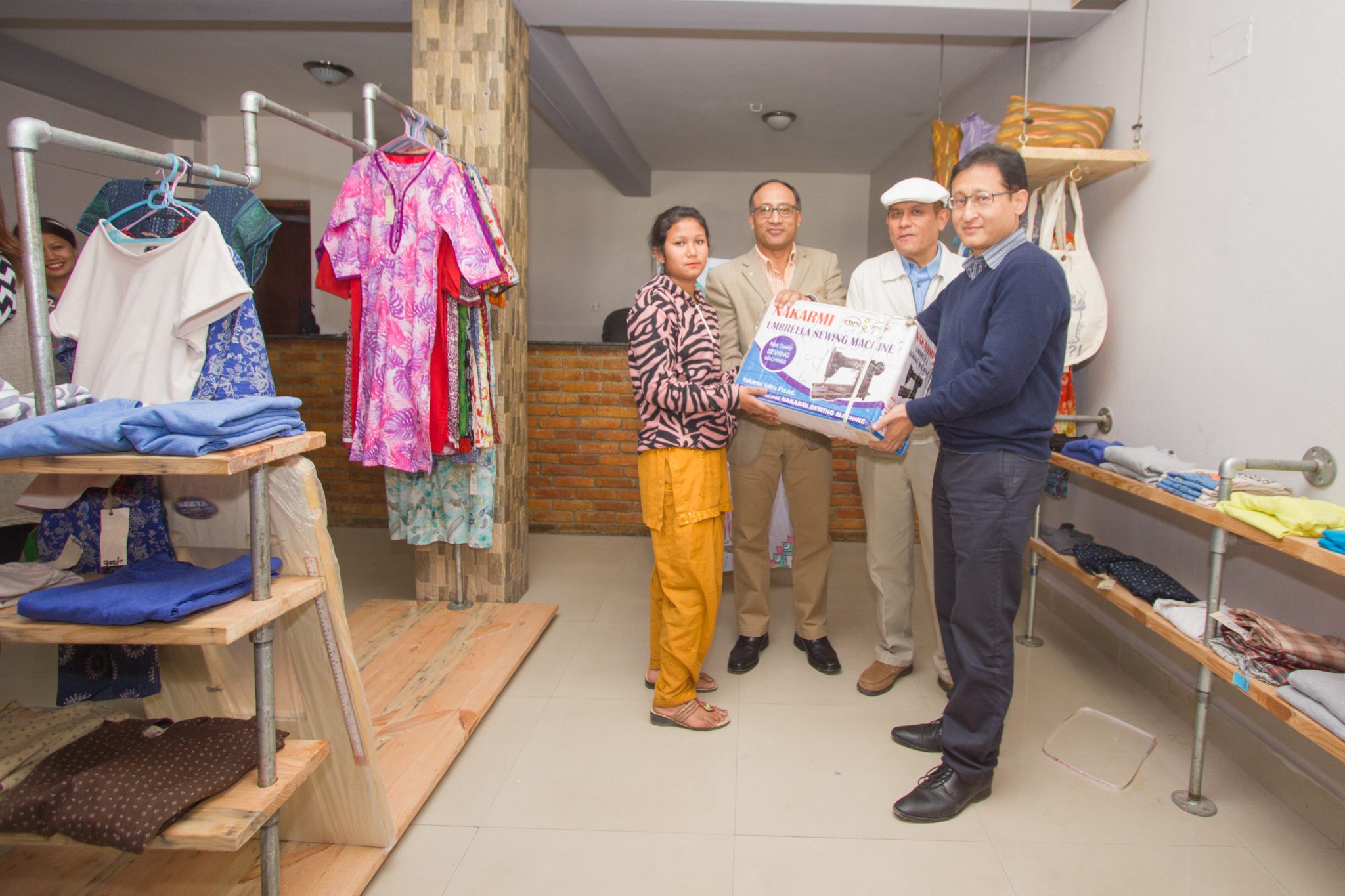
“Our job doesn’t end there after providing machines. It’s a big challenge for them to start something on their own in their community, we follow-up with them every couple of weeks and provide periodic motivation, as they were in a comfort zone here. We talk with community people and family members and assess on how their skills can be showcased in a better way and how can they move forward,†Karki explains.
As most of the girls for the training have been from marginalized communities, the project seeks to make them independent. And, as many are school dropouts, with the tailoring skills, they can start tailoring business in their own community and stand on their own feet. “With the training, we are not looking their future only from a business point of view, but having a successful life by channelizing the skills they have, and giving hope to the people who also don’t have that much of education, feeling empowered even in a small way,†Karki says.
“While they had come to us, they were shy, they were introvert. They couldn’t speak, and communicate, and didn’t have leadership skills. After they were into the training, we could see amazing progress in them. At the end of the course, when they shared their experience, everybody said that they never thought in their life that they would even stand here and speak in front of a mass,†Karki expressed happiness for being successful in conducting the training.
Sharing the greatest challenge, Karki says that they had to go through it at the time of need assessment. “We had considered that everybody would be very happy when we go there to bring them to the training. We had assumed that it would be an easy task. But, when we reached there, in that setting, it was a bit challenging to bring them to here from that comfort zone. We had to convince their parents. And, at times their parents also had to convince their community people that their daughter is going for a good work, and need not to fear.â€
“And, in tailoring training phase, it was somehow hard as many of the girls do not have educational background, and cutting the clothes as per the required measurement needs knowledge of maths and calculation. But, the trainers handled it pretty well. And, we helped them understand basic things,†Karki adds.
Now, the challenge lying ahead of them is to market and sell their products, as Nepal made small scale products can’t compete in price with the mass produced items from abroad. “Though we don’t put very little profit margin, it’s still hard to compete with these items that have been from China and other nations, and locally produced goods are going to be slightly expensive than the items that are from mass production,†Karki further shares.
Reflecting about the project, Karki shares that they want to make Danfe a self-sustainable project. “We want to develop it as an established enterprise so that the organization too will get self-sustained. It might be a big dream, and challenging, but we are already moving in that direction,†Karki explains.
“From our over the year experiences of working in the organization, what we saw is that NGOs are overly dependent on the donors. But, we started the project and moved it ahead in a different way to make it self-sustainable. Danfe is more focused on quality rather than quantity, providing after-training supports, and helping the trainees to start their own business. We are currently working in two directions: social work and business model, to sustain the project. I think all the NGOs should now start to work in that model,†remarks Bijeysh Ranjit, Administration and Development Director at the organization.
To work on that direction, and showcase and make sales of the products made by the project beneficiaries, Danfe has launched its outlet on December 23, 2016.
By Basanta Kumar Dhakal



